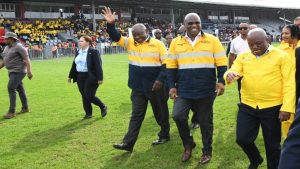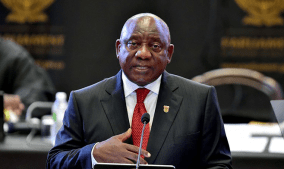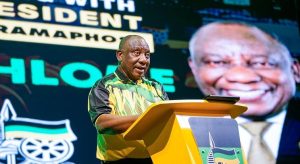The Independent Schools Association of Southern Africa says their schools have not been closed because government believes they have the capacity to implement measures required to fight the coronavirus pandemic.
The association’s Executive Director Lebogang Montjane says its schools follows the safety precautions against COVID-19.
On Thursday night, President Cyril Ramaphosa announced that public schools would close for four weeks, from July the 27th to August the 24th.
He however, said Grade 12 learners and teachers would return to class by 3 August, meaning that they will only take a week’s break. Grade seven learners will have a two-week break and return to school on 10 August.
“The reason why the president has said independent schools can continue to operate, is that the test is about this – are you able to safely operate under the conditions? Which means that we can following the standard operating procedures – social distancing, masks, hand sanitisers, ablution facilities. We are told that you cannot have towels, you’ve got to have paper towels, it’s all of those kind of things,” says Montjane.
Disagreement with closure of public schools
The South African Human Rights Commission (SAHRC) says government’s decision to close all public schools except Grades seven and 12, until the 24th of August is regrettable and unjustifiable.
The commission says it’s unacceptable that over 10 million children will lose out on over 50% of their academic year.
The commission’s Andre Gaum says the opening of schools is guided by the evidence provided by a range of researchers that point to the devastating consequences of children not being at school.
“It means that by 24 August 2020 over 10 million South African children will have lost about 100 scheduled school days. The commission is however, happy with the announcement that the government will follow the North Gauteng High Court decision in Pretoria that the National School Nutrition Programme be resumed for all 9 million qualifying learners,” says Gaum.
President Cyril Ramaphosa announces the closure of public schools
Meanwhile, Western Cape Education MEC Debbie Schafer says she is not surprised that Ramaphosa has again given in to the demands of unions to close public schools.
Schafer believes a month-long closure is not in the best interest of learners.
“I am disappointed but not surprised that the president has capitulated to union demands for the closure of schools. I was in favour of a two-week break, recognizing that many of the teachers worked throughout the lockdown and a break would give them a chance to recharge and reduce anxiety levels but a four-week closure is against the interest of learners and is not based on the medical evidence currently available,” says Schafer.
Political Analyst Sandile Swana weighs in on the upcoming closure of schools
Private education body – Foundation for English, Mathematics, Sciences, Sports and Innovation of South Africa (FEMSSISA) – says government needs to use the four-week school break to strategically plan ahead.
The body’s chairperson Vishnu Naidoo has expressed concern on the disinfection of schools in KwaZulu-Natal. Naidoo says adhering to the disinfection protocols is difficult for many schools.
“I believe that they don’t have a strategy in place to handle the issue of the airborne virus. This has been revealed by the World Health Organisation as well. It has only come out recently. The other problem is they have very little idea about disinfecting the environment and atmosphere. There are confusing sanitising with disinfecting,” says Naidoo.






